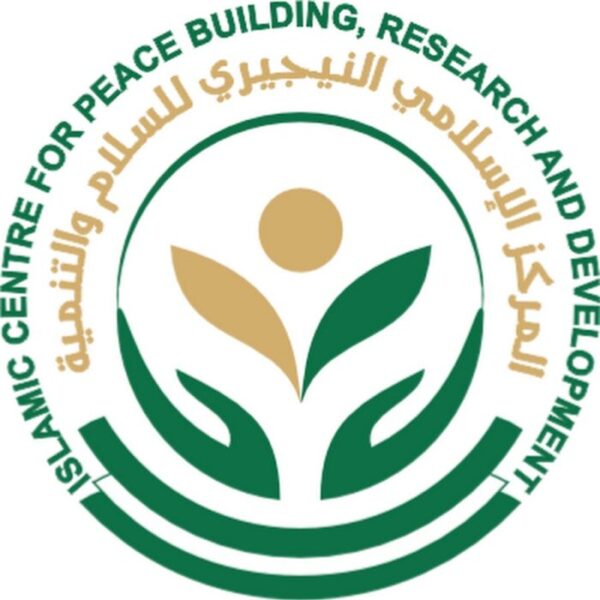Article of Faith
IC-PAD, the Aurora Polaris! -By Ismail Misbahu
As a new born spirit for Muslim unity and progress, the IC-PAD strives to respond to these challenges as well as underestimate the erroneously ideologized nuances of ‘Violent Extremism (VE)’ ‘Terrorism’ and (or) ‘Radicalism’ being attributed to Islam and Muslims. It aims to engage in this counter narrative by promoting the ideals of Muslim unity and promoting safer and softer versions of Islam…

In such a polar light, the Islamic Centre for Peace Building Research and Development (IC-PAD) has formed a new sparrow-fart, cockcrowing a new dayspring for Muslims. Here’s a dollar, exchanging the rate of ideas from all Muslim denominations within Nigeria and across the Sahel, West Africa and Sudan.
The ideal of its mission according to its founder and Chairman, Sheikh Professor Ahmad Ibrahim Maqary, reads in bold Hausa and I quote: “WANNAN CENTER BATA DARIQA BACE, BATA IZALA BACE, BATA SHI’A BACE, CENTER CE TA HADA KAN MUSULMI DA CI-GABAN MUSULUNCI” (that the IC-PAD does not prioritise the propagation of Tariqa version of Islam, nor does it so for Salafi/Wahhabi/Izala, neither the Shi’ite as well; it’s established based on the principles of promoting Muslim unity, peace and harmony). This is purely set against the backdrop of pro-Western ideology that Islam could hardly have a safer progeny⸺a set of Muslims⸺who may, in the future, shoulder the arduous task of emancipating ‘radical Muslims’ from developing ‘extremist views or propagating ‘Islamic extremism’, and therefore, to many Western intellectuals, Islam must be a target of counter-terrorism, anti-Islamic extremism, ‘deradicalization’ and similar other adverbial connotations.
Strategizing its mission, the IC-PAD set to redeem the image of Islam by promoting peace and sustaining genuine Islamic discourse, values, compassion and justice across Africa. This will be attained by breaking new grounds for research and sustained engagement in training on Islamic peace and capacity building across West Africa, the Sahel and Bilad al-Sudan. Promoting cooperative, constructive and positive interaction and inter-faith dialogue between and amongst adherents of different Islamic creeds and other religious beliefs, at both individual and institutional levels is at the core of its mission. Indeed, this has become all-too-often a reality for the Centre right at its inception, only to enable Muslims overcome the division that creates conditions for violent confrontations as well as eliminate the notion of violent extremism among Muslims.
Under the courage, valour and the riveting sincerity of its founder and Chairman, Sheikh Maqary, the Centre sought the ideals of its Opening Ceremony from well-intentioned learned scholars versatile in Islamic knowledge, professors and academic doctors of high professional standard: pluralistic in context, potent in navigating the digital-era-clockwise, possessing a degree of novelty, sense of reasoning, indebtedness and charisma, all demonstrating the necessity and possibility of forging a Muslim unity beyond sectarian Islamism. This is with the aim to amiably set the milder volume of the fewer, indeed irrelevant and often conflicting points of disagreement and keep on the higher melody, of the many but often most commonly plinther obligations that accept and guide Muslim unanimity, unity and cohesion in all respects.
The IC-PAD started with two-day seminar presentations on “Scientific Qualifications for Imams: Issues and Prospects” held at NTI head-quarter, Kaduna on the 1st and 2nd of this month (October), 2022. In attendance were the chairman and the founder of the Centre, the Chief Imam of National Mosque, Abuja, Professor Ahmad Ibrahim Maqary, the Chief Imam of Sultan Bello Mosque, Kaduna, Dr. Suleiman Muhammad Adam, the Honourable Speaker, Kaduna State House of Assembly, Rt. Hon. Yusuf Ibrahim Zailani, His Royal Highness, Hakimin Rigachukun, the Coordinator of the Global Peace Foundation (GPF-Nigeria), Sheikh Halliru Abdullahi Maraya, AIG Ahmad Abdurrahman who’s known for his esteemed quality leadership and love for Muslims solidarity, peace and harmony, Senator Uba Sani and host of other dignitaries criss-crossing religious sects, political, professional and social classes from near and far, nooks and cranny, all over Nigeria.
Presenters at the Seminar include Sheikh Sani Isah, Dr. Sa’ad Musa, Ustaz Khadi Attahir Baba, Mallam (Hon.) Khadi Mustapha Umar Suleiman among several other well-meaning religious clerics from all angles.
Being the theme of the Seminar: “Scientific Qualification of Imam: Issues and Prospects”, most of the papers, if not all, had juxtaposed an Islamically-based philosophical praxis with connecting ideas drawing similar and differing narratives on the subject matter, undeniably asserting the relevance of the discourse to Muslims all over Nigeria, Africa and beyond. It has gone beyond the mere impression the title has assumed i.e., of ‘qualifications and values’ which Imams are expected to have acquired, but more importantly were the vast and broader analyses of what Mosque, as a generic symbolica of a Muslim community ought to have stood for right from the ward level to local government, state, national, regional/continental and global levels. Illustrations on how the institutionalisation, proper leadership and organization of Mosques could cater for the needs of Muslims as well as address so many challenges facing Muslim communities in Nigeria and the rest of West Africa were drawn from the dynamism of Mosques in other countries of the World, which today are seen as the Qarawiyyun in Faskh (Algeria), al-Azhar University in Egypt, Zaytoon in Tunisia, Darul-Uluum in India and Pakistan as well as various other examples where institutionalised Mosques become significant in safeguarding Muslims and protecting the interest of Islam. Such countries as Iran, Turkey and elsewhere, in addition to others mentioned above have been able to progress religiously and have the audacity to protect the sanctity of Muslim brothers, prioritise their religious ideals into every real-day life activity.
In such countries, apart from observing the Deen, Mosques, as were known during the times of the Prophets and Sahabah, are centres of administration, justice, moral training, settling of disputes, strengthening brotherhood, problem solving and promoting unity, peace and understanding. They are seen as institutions for regulating Muslim public life in its entirety, starting from education/schooling, morality, administration of justice, security, marital conflicts, crimes and criminality etc just as their Imams and religious leaders are also seen as builders, through huge endowments (Waqf), investments and shareholding, of public health-care institutions, orphanage, Zakkat and many more that cut across the question of women and parenthood, abandoned children, Almajiri, prisoners, etcetera. Proper organization and leadership of Mosques as well as the credibility and integrity of Imams and Muslim leaders have proved capable of addressing so many social challenges prevalent in Muslim societies: rape, murder, homicide, extra-judicial killings, attempted suicides, Takfir, growing and seemingly unavoidable feud among religious scholars, etcetera. It’s indeed observed that many of these challenges have not been frequently experienced in countries where coherent leadership responsibilities and high sense of organization prevails.
It’s frightening to see that in Nigeria, not even at macro (ward) level this has been so attempted. It’s indeed scary to hear that in Europe, the number of Muslim charity organizations (Mu’assassatul Waqf) counts about 1,200,000, far incomparable to the 60030 of such organizations in Sa’udi Arabia from 2020-2021. In Nigeria, the 0-number of such organizations is even more sickening! What have been in the 0-shade are Zakkat committees largely unknown to the larger ordinary Muslims at the grassroot levels. In countries where Islam matters enough on catering the needs and improving the lives of Muslims, hardly could one witness a sick person begging in Mosques just to afford drugs and (or) seek medication. A genuine and sincere leadership among Muslim Imams and religious leaders is proved capable of taking into account, from every ward and street, the number of medical doctors, nurses, midwives, teachers, agronomists, lawyers, and many more whose exceptional wisdom and professionality is a great treasury to Muslim Ummah.
Deep sighs from many participants in this great Seminar organised by the IC-PAD had boiled intentions into meaningful expressions⸺a sober reflection on how disunity consumes Muslims’ solidarity, idealism and religious ‘dogmatism’ exposed Muslims’ sacredness and subdued the integrity of Islam, leading to extremist leanings and emergence of new ‘Islam-bearing creed’ resorting to violent extremism with even more vulgar interpretations of religious texts and to some extent, even sadistic orientation on inciting violence and genocidal killings. All these ensued as a result of prevailing ignorance among a large Muslim youth population in semi-urban and rural areas who are currently becoming victims of Christian evangelism across the rural North-central, North-west and North-east simultaneously. While noting the grave inequality and the disaster reactions caused largely by the increasing level of structural violence among citizens in these regions, the organizational lapses and the weakening of Muslim institutions have spiritually worsened the situation.
As a new born spirit for Muslim unity and progress, the IC-PAD strives to respond to these challenges as well as underestimate the erroneously ideologized nuances of ‘Violent Extremism (VE)’ ‘Terrorism’ and (or) ‘Radicalism’ being attributed to Islam and Muslims. It aims to engage in this counter narrative by promoting the ideals of Muslim unity and promoting safer and softer versions of Islam, strategizing peace initiatives, generating hopes in the minds of teeming Muslim adherents, empowering Muslim youths and embarking on sustained research on the needs of Muslims across urban and rural enclaves.
This sounds patient giving the quagmire of Muslim leadership vis-à-vis the religiosity and statelessness of its communities across Nigeria and beyond into the Sahel and Bilad al-Sudan. The IC-PAD owes its principles from the Holy Qur’an and Sunnah of the Prophet (S.A.W) and has been spiritually motivated by the saying in the holy Qur’an 3:104: “Let there be a group among you who call others to goodness, encourage what is good and forbid what is evil⸺it is they who will be successful”. Heeding on this message and lesson contained in this verse, ICPBRD took the companionship in keeping with the message of spreading the true teaching of Islam and emancipating the faithful from the shackles of misconception, misinterpretation and deliberate distortion of scriptural provisions to the detriment of mankind.
Ismail Misbahu, the Project Officer at IC-PAD wrote from Abuja.




















